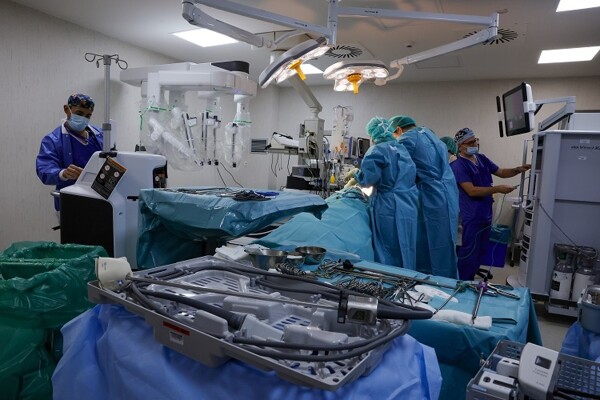The 12 de Octubre University Hospital in Madrid has achieved a milestone by successfully performing robotic surgery on a 10-month-old baby weighing 8 kilograms. This intervention, conducted using the Da Vinci system, is the first of its kind in Spain, marking a new phase in the treatment of small children with very low weights.
Robotic surgery at this hospital has been used on over 500 patients, both adults and children over the age of ten, covering various medical specialties, primarily Urology and Neurosurgery, to carry out highly complex interventions in a minimally invasive manner. In the case of the operated baby, a malformation was corrected, the risk of kidney damage was reduced, and recurrent urinary infections were diminished, improving their quality of life.
The use of the Da Vinci robot allowed for extreme precision in the surgery, minimizing the risk of bleeding and accelerating the recovery of the patient, which in this particular case was one month. The technology offers advantages such as less invasiveness, reduced scarring, minimal scars, and less postoperative pain, contributing to a faster recovery.
The baby had previously undergone unsuccessful surgical treatment, so the pediatric urologists decided to perform a reimplantation of the ureter using the Da Vinci robotic surgery. Through this technology, greater efficacy was achieved in the intervention, contributing to the success of the procedure in the case of the smallest patient operated with this technology in Spain.
The implementation of robotic surgery in the public healthcare system of Madrid, covering 60% of the cases, has been made possible by an investment of over 12 million euros in the acquisition of state-of-the-art equipment. This technological advance provides precision and efficiency in highly complex surgical interventions, being essential to improve outcomes in patients of all ages, even in the smallest and lightest.














